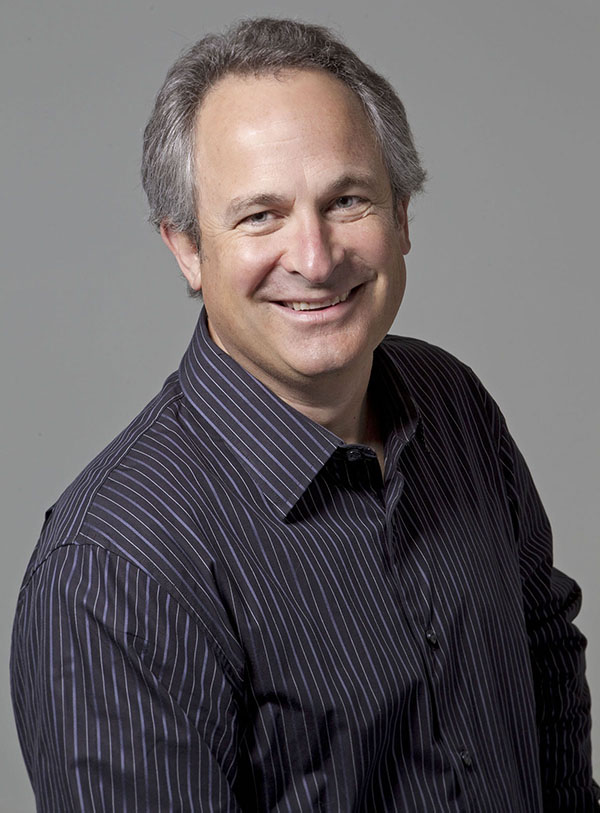Dr. Tim Ludwig is a behavioral psychologist, which means, as he puts it, “I don’t care what you think or feel. I care about what you do.”
In particular, the Appalachian State University professor cares about the safety management techniques practiced in industry that impact the lives they are designed to care for. As a leading authority in the multidisciplinary field of industrial safety, Ludwig has good reason to want to keep workers safe.
More than 2.9 million workplace injuries were reported in the United States in 2015, Ludwig said, and many of them were due to human error. The economic cost of such injuries was calculated at $250 billion, according to a 2011 study. For 2015, the Bureau of Labor Statistics reported that 150 North Carolina workers died from injuries on the job; nationally, more than 1.2 million days-away-from-work cases were reported in private industry, state government and local government.
In this niche field, Ludwig and colleagues have developed programs that teach employees to conduct structured peer-to-peer behavioral observations, followed by directed feedback and coaching. Behavioral data collected this way are then analyzed by employee teams who work with their management to build the environmental contingencies that promote safe behavior.
Through his consulting, Ludwig has helped design, deliver and implement safety programs at companies such as Marathon Petroleum, Corning, FMC Corp, Union Pacific, Newmont Mining, the Tennessee Valley Authority, NASA, Nucor Steel and DRA Minerals of South Africa. At more than 20 companies, his work has contributed to injury reduction of 30-80 percent over a five-year period. His content-rich website, Safety-Doc.com, provides safety culture stories, blogs, research, videos, services and more.
Appalachian Safety Summit
Since 2015, Ludwig has organized the Appalachian Safety Summit, which brings more than 100 safety employees, teams and managers to campus to learn about the latest research in behavioral safety approaches to safety culture change.
In 2016, Industrial Safety and Hygiene News (ISHN) cited him among its 50th Anniversary 50 Leaders for Today and Tomorrow, and in 2012 named him among its “Power 101” Leaders in the Safety and Health World.
In 2017, Ludwig was nominated for the O. Max Gardner Award presented by the UNC Board of Governors. “Dr. Ludwig’s passion for behavioral safety and his compassion for workers is obvious to anyone who has had the opportunity to work with him,” a colleague wrote in a nomination letter. “His tireless work has resulted in reduced injury rates, increased productivity, and the establishment of a culture of safety in the workplace.”
A former graduate student wrote she was drawn to Appalachian because of Ludwig and his work. “He has contributed to the safety of thousands of workers, and thusly even more families,” she said.
A dedicated teacher
In Appalachian’s Department of Psychology, Ludwig teaches introductory psychology courses as well as in the nationally recognized master’s program in Industrial-Organizational Psychology and Human Resources Management (IOHRM). His philosophy of teaching, he said, includes equipping students with behavioral change technology so they can turn their caring into action – and, ultimately, reduce human suffering.
“I’ve dedicated my career to honor those who actively care to keep others safe by giving them ideas and tools to serve our shared mission,” Ludwig said. “The active shooter at my graduate alma mater, Virginia Tech, who took 33 lives in one day hit me hard, a feeling too-many thousands have felt when workers get hurt on the job. Therefore, our efforts go out to families, peers and safety professionals who work to protect and reduce human suffering. It is a noble thing they do.”
What do you think?
Share your feedback on this story.
About the Dr. Wiley F. Smith Department of Psychology
Appalachian State University’s Dr. Wiley F. Smith Department of Psychology serves more than 1,400 undergraduate majors seeking the Bachelor of Arts or Bachelor of Science degree in psychology, as well as 90 graduate students across four graduate programs: experimental psychology (MA), industrial-organizational psychology and human resource management (MA), school psychology (MA/SSP) and clinical psychology (PsyD). Learn more at https://psych.appstate.edu.
About the College of Arts and Sciences
The College of Arts and Sciences (CAS) at Appalachian State University is home to 17 academic departments, two centers and one residential college. These units span the humanities and the social, mathematical and natural sciences. CAS aims to develop a distinctive identity built upon our university's strengths, traditions and locations. The college’s values lie not only in service to the university and local community, but through inspiring, training, educating and sustaining the development of its students as global citizens. More than 6,800 student majors are enrolled in the college. As the college is also largely responsible for implementing App State’s general education curriculum, it is heavily involved in the education of all students at the university, including those pursuing majors in other colleges. Learn more at https://cas.appstate.edu.
About Appalachian State University
As a premier public institution, Appalachian State University prepares students to lead purposeful lives. App State is one of 17 campuses in the University of North Carolina System, with a national reputation for innovative teaching and opening access to a high-quality, cost-effective education. The university enrolls more than 21,000 students, has a low student-to-faculty ratio and offers more than 150 undergraduate and 80 graduate majors at its Boone and Hickory campuses and through App State Online. Learn more at https://www.appstate.edu.














